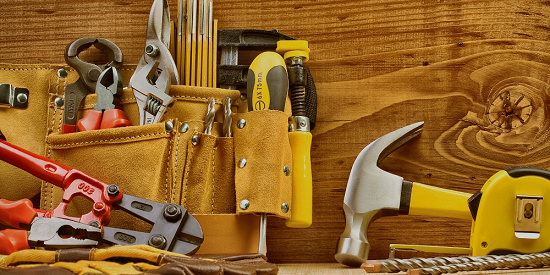 Your home is likely to be the biggest investment you make in your life. Make the most of it by making improvements that add value, not just to the price, but to your own happiness and well-being
Your home is likely to be the biggest investment you make in your life. Make the most of it by making improvements that add value, not just to the price, but to your own happiness and well-being
Everybody wants to live in the home of their dreams. A bright garden with a sparkling pool; a sun-lounge with bay windows and Oregon floors; a study at the quiet end of a shady path; a big bathroom with a pressed-steel ceiling; a kitchen expansive enough to accommodate your heart and soul.
But every dream comes with a disclaimer, and in the case of domestic bliss, it is this: sooner or later, you’re going to have to renovate.
Because every house is a work in progress, and anyone who has ever owned one will be happy to share their terrifying tales of absconding builders, burst geysers, overflowing budgets, and enough noise and dust to drive you out of home.
At the same time, if you manage to get it right, you could add significantly to the value of your property, not just in financial terms, but in the happiness and well-being that comes from a job well done.
With that in mind, David O’Sullivan invited three home-renovation experts into the BrightRock studio for an Iris Session on the do’s and don’t’s of home improvement.
Mandy Collins, a journalist, author, and “home improvement fanatic” who has just moved into a new home in Johannesburg; Wicus Pretorius, editor of the home improvement glossy, Tuis; and Christopher Hajec, managing director of the real estate agency, Seeff Randburg West Rand.
Mandy, who fell in love with her new home on the first amble up the garden path, admits she overlooked a few minor flaws in favour of its charms. “If you call it shabby chic, you can get away with anything,” she says.
Then, one day, she looked up and saw the massive damp spot on the ceiling. “The guy I bought the house from said, it’s from a previous leak, the roof is sound, don’t panic.”
But you do, not just because you’re worried about the roof over your head, but because you’re already spending enough money on your mortgage.
That puts you in a classic dilemma: do you keep on fixing things up, or do you start looking for another place to fall in love with?
The reality, says Christopher, is that more and more homeowners are turning to renovation, because it’s become so “cost-prohibitive” to move.
“The upper end of the market has slowed down considerably. Rather than selling, people are renovating.”
But renovating a home can be its own reward, especially if you see it as a creative task, rather than a bothersome chore.
Wicus, whose publication offers homeowners advice and inspiration on reimagining and reinventing their homes, sees renovation as a fulfilling hobby: “To me, the smell of wet cement is better than the smell of a leg of lamb,” he says.
But he draws the line at toying around with plumbing or electrical work. That’s where you need to get the professionals in.
But even small cosmetic changes can make a big difference to the look and value of a house.
For example, “take up the horrible carpets and show the Oregon pine floors. Floors are the fifth wall of a house. They can totally change the look. But proper doors, replace door handles. You can make a huge difference for a fairly small investment.”
While Mandy says her new house felt like home from the day she moved in, she still plans to change the tiles – “They’re beige, and I’m not a beige person” – and she has a bathtub standing in the garden , waiting for that big renovation day. Until then, she uses it as a sanctuary for reading, filling it with cushions and lying back for a relaxing escape.
But when talk turns to home improvement, it inevitably takes a detour to a syndrome estate agents like to warn you against – over-capitalisation.
“In the real estate industry, we like to say that we sell a used product,” says Christopher. “For the uninitiated, it can be scary. Think about the style and longevity of the décor when you renovate. We often say to a seller, if you had known you were going to sell, would you have put in this improvement? We see overcapitalisation all the time.”
But if you think carefully about why you’re improving your home, and what you hope to get out of it in the long run, it can help to turn your biggest investment in life into a dream home come true.
For more advice and insights on making the most of your home, watch the full Iris Session below:

Leave a Reply